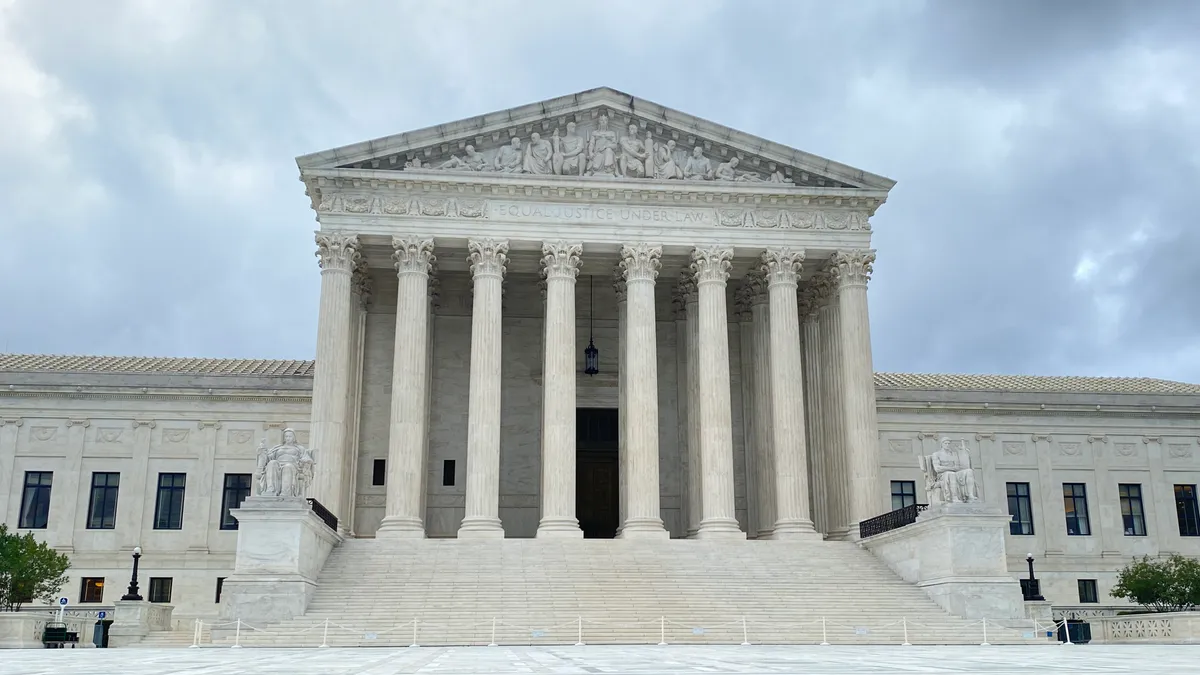Dive Brief:
- The U.S. Supreme Court declined to take up a UPS driver’s appeal in his suit alleging that the company violated the Americans with Disabilities Act when it placed him on unpaid leave rather than providing modified equipment as an accommodation, according to orders released by the court Monday.
- In July, the 4th U.S. Circuit Court of Appeals held in favor of UPS in Young v. United Parcel Service, Inc. The court said UPS properly concluded that it could not grant the driver’s request for a smaller truck which, he said, would accommodate his sacroiliitis. The 4th Circuit further concluded that unpaid leave is a reasonable accommodation under the ADA.
- Young is the latest ADA-related appeal to be denied by SCOTUS. However, the high court heard oral arguments last month in a separate ADA case involving website accessibility and the use of “tester” cases in the ADA context. It will also hear arguments in December for an employment discrimination case, Muldrow v. City of St. Louis.
Dive Insight:
The employee argued in the petition for writ of certiorari that the 4th Circuit’s ruling “confused the equipment Petitioner used to perform the job with the job’s production standards,” as UPS denied his request for a smaller truck in part because it said the driver’s route required the use of a larger truck.
“No such existing precedent from this Court supports this result, which eviscerates the modification of equipment as a reasonable accommodation,” the petitioner said.
The case adds to the high court’s recent streak of declining to take up employment-related ADA cases. In 2021, the court declined to take up another 4th Circuit case involving a former employee of General Dynamics Missions Systems, who alleged that the company fired her because her disability made her unable to comply with the company’s safety requirements.
Earlier that year, SCOTUS declined to hear the appeal of a former Costco employee. The 11th Circuit held that a jury incorrectly awarded $775,000 to the employee in her disability accommodation suit. In 2020, the high court similarly declined to take up the question of what a plaintiff who brings an ADA lawsuit must prove, which stemmed from a 2019 ruling by the 9th Circuit.














